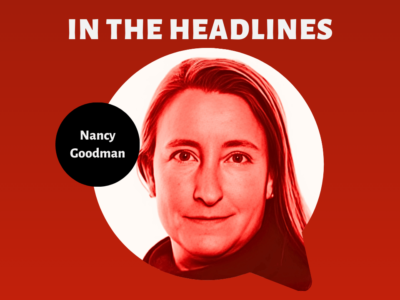On Dec. 19, the Mikaela Naylon Give Kids a Chance Act was blocked in the Senate by Sen. Bernie Sanders (I-VT) after receiving unanimous approval from the U.S. House of Representatives Dec. 1.
In a year that brought us new KRAS-inhibiting drugs, deepened our understanding of HER2 in breast cancer, and highlighted new potential for mRNA vaccines, the cancer field was also rocked by uncertainty of the future of research funding, equity in cancer delivery, and the integrity of review at FDA.
A year like 2025 has demanded a lot from all of us, between the Trump administration’s flooding of the zone, the impact of DOGE and MAHA initiatives on the National Cancer Program, and the personal toll of living amidst uncertainty. In many ways, 2025 was a test. Did the field of oncology pass? Did The Cancer Letter?
As trust in scientific and regulatory institutions frays and the meaning of “gold standard science” is increasingly contested, cancer research faces a credibility test of its own.
Last month, FDA withdrew a proposed rule for standardized asbestos testing in talc-based cosmetics. The proposed rule, introduced in Nov. 2024 and withdrawn Nov. 2025, was mandated by the Modernization of Cosmetics Regulation Act of 2022 or MoCRA.
Last week’s issue of The Cancer Letter featured great news and terrible news.
Edward Chu, director of the Montefiore Einstein Comprehensive Cancer Center, died on Nov. 13 from glioblastoma. He was 66.
Recently, a wave of new private insurance mandates have swept the nation making fertility preservation a covered benefit for people with cancer in 21 states plus Washington, DC.
Last week, Richard Pazdur was named to the position of director of FDA’s Center for Drug Evaluation and Research. Much has been written about how Pazdur, with nearly a three-decade long career at the agency, represents a stabilizing choice for FDA as it faces inner and outer turmoil.
Richard Pazdur, founding director of FDA’s Oncology Center of Excellence and long-time FDA visionary, has accepted the top job at FDA’s Center for Drug Evaluation and Research following George F. Tidmarsh’s dramatic ouster from the position.



















